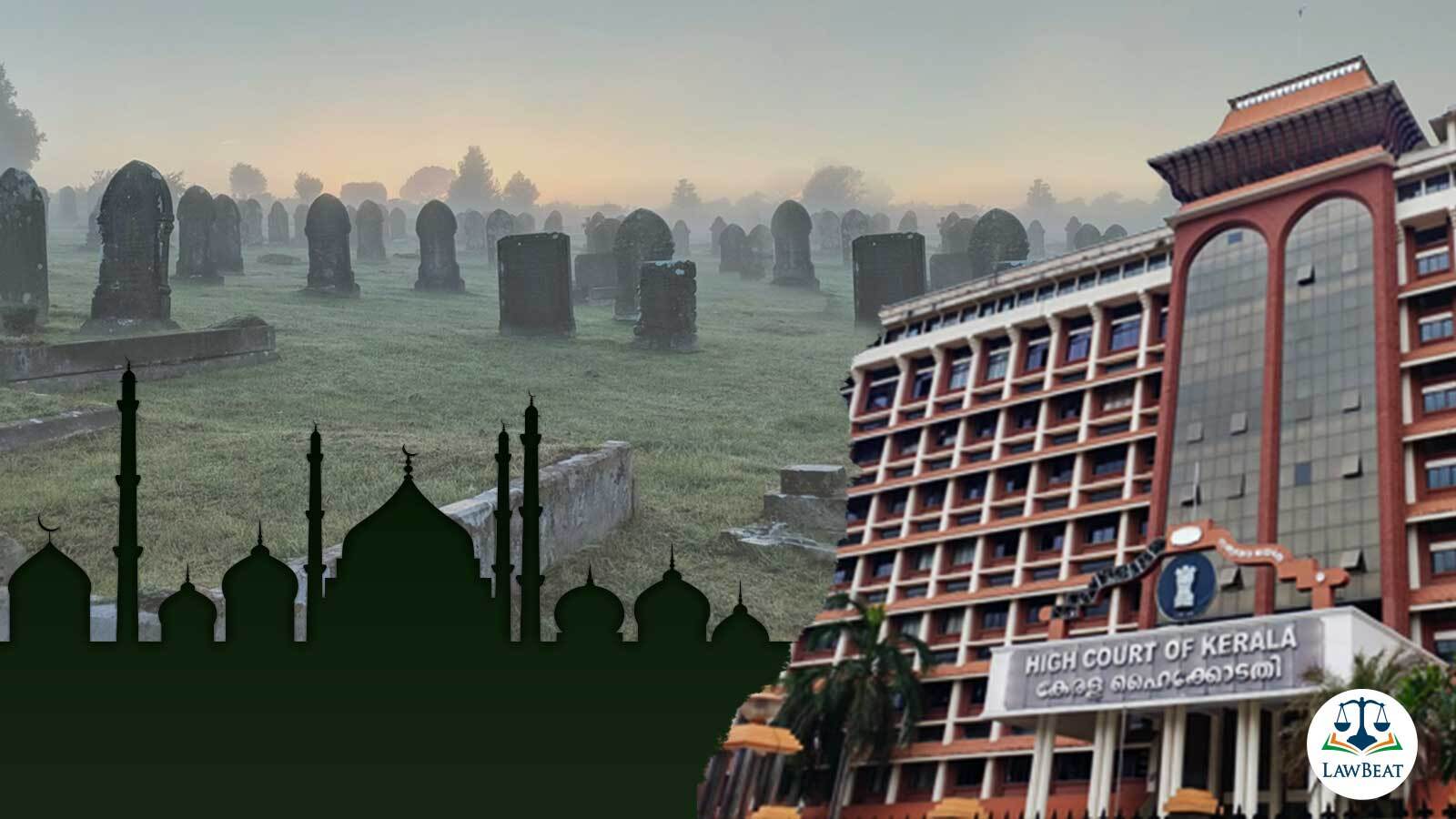“Mosque is a place of worship & every Muslim irrespective of sect entitled to offer prayer: Kerala High Court

A division bench of Justice SV Bhatti and Justice Basant Balaji observed that a Jama-ath cannot prohibit Muslims of other sects from praying in mosques or burying their dead in public khabarsthan on their property.
The Kerala High Court has recently held that a mosque is a place of worship and every Muslim, irrespective of sect, is entitled to offer prayers. Moreover, Court added all Muslims can bury dead bodies in a public khabarsthan.
The court was hearing a revision petition filed by a Jama-ath against an order issued by the Waqf Tribunal in Ernakulam.
A division bench of Justice SV Bhatti and Justice Basant Balaji observed that a Jama-ath cannot prohibit Muslims of other sects from praying in mosques or burying their dead in public khabarsthan on their property.
Court ordered that the burial of the dead is also a civil right, the graveyard on the plaint schedule property is open to the public and according to civil rights, and every Muslim is entitled to a decent burial. The graveyard under the supervision of the first defendant is a public graveyard, any Muslim or any member of the first defendant has a right to bury the dead, Court said.
The plaintiffs in the case were members of the Jama-ath before being excluded for attending a religious discourse conducted by the Kerala Nadavuthul Mujahideen sect.
They were barred from burying their dead or praying on the waqf's property, prompting them to file an original suit with the wakf tribunal.
The tribunal had ruled in favor of the plaintiffs and declared that they and similarly situated individuals have the right to offer prayers in the defendant mosque and bury family members' dead bodies in the Jama-ath.
Advocate P Jayaram, appearing for the revision petitioner before the High Court, argued that the religious beliefs and practices of its Jama-ath and the Mujahideen sects differ in many ways.
He contended that the tribunal's decision would only disrupt the public order, morality, and health of Muslims and that it was violative of Articles 15 and 25 of the Indian Constitution.
Jayaram further contended that the plaintiffs should have approached the Wakf Board, which has the authority to frame a scheme for the administration of the Wakf under Section 69 of the Wakf Act.
On Contrary, Advocate Abdul Azeez on behalf of the plaintiffs argued that stopping the plaintiffs from praying or burying their dead simply because they attended a “Mujahideen sect” discourse was illegal.
Conclusively, Court while declining to interfere with the order of the Wakf Tribunal ordered that the first defendant cannot prevent the plaintiffs from praying in the mosque and burying the bodies of their relatives by claiming that they have been excluded from the Jama-ath because they complied with the Kerala Naduvathul Mujahidhin Sect.
“Jayaram’s contention will not stand up in court because every Muslim has the right to offer prayers in any mosque or bury their dead in a public khabarsthan, as the first defendant's mosque and khabarsthan are public, it cannot prevent the plaintiffs from praying and burying the dead," the court added.
Accordingly, the petition was dismissed.
Case Title: Elappully Eranchery Jama-ath Palli v Mohammed Haneef & Ors.
